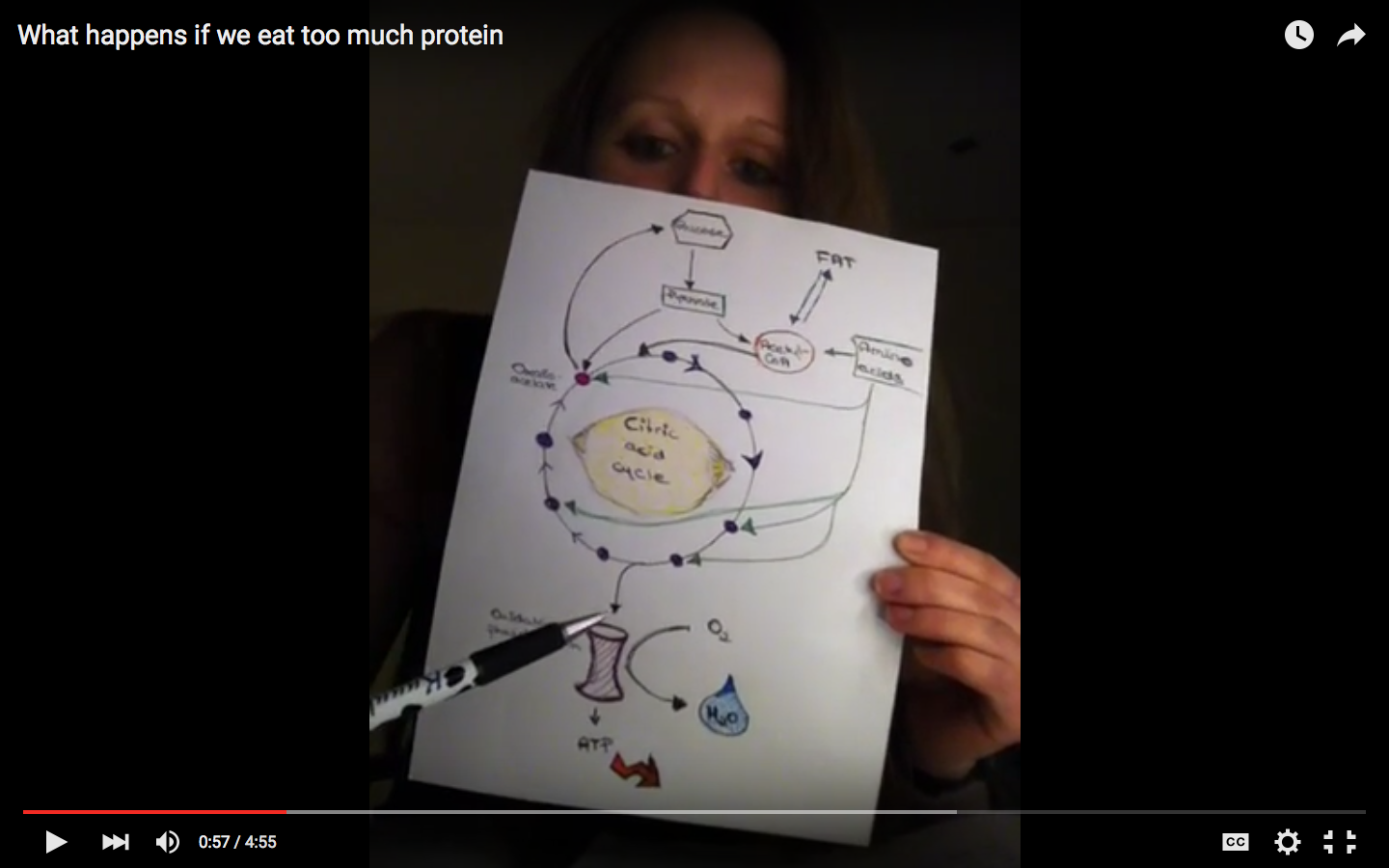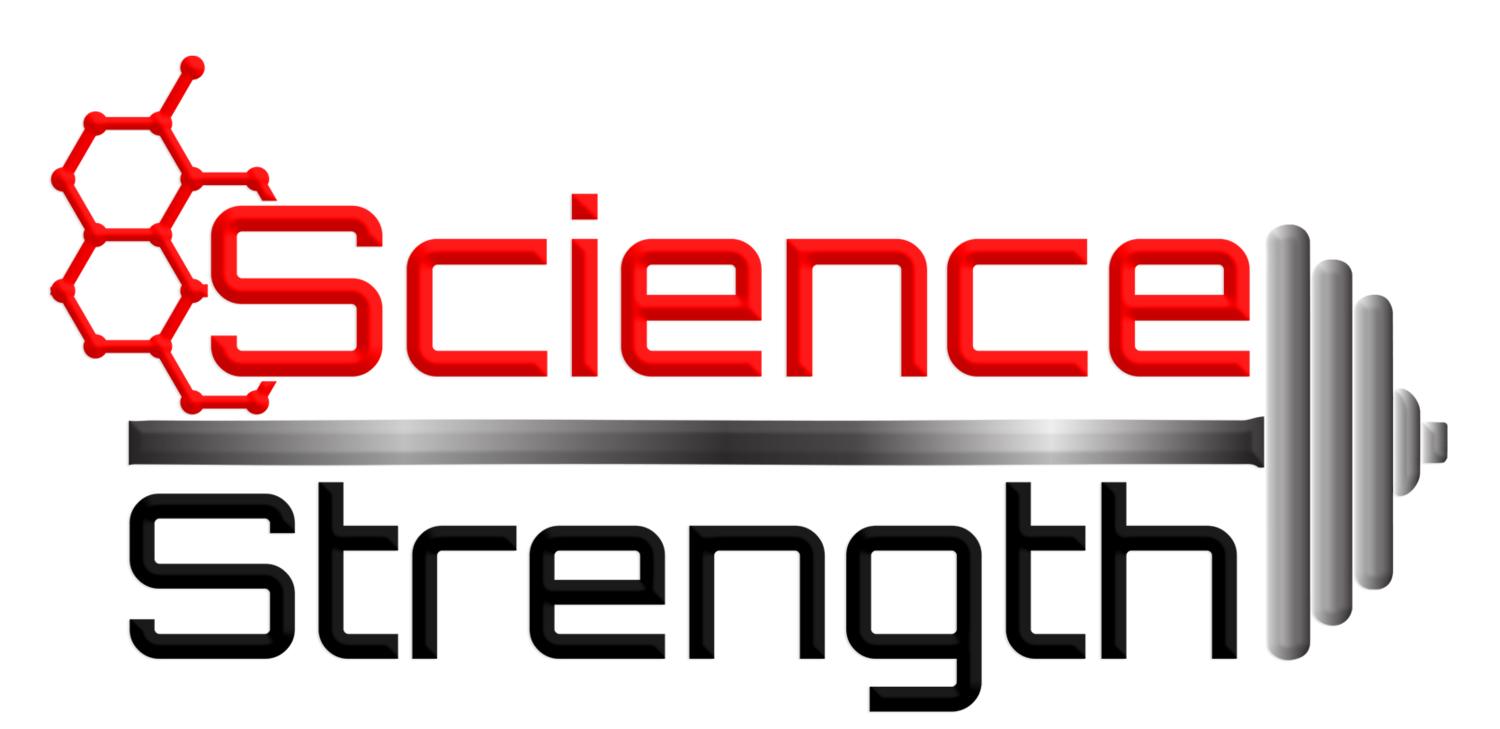Yes, I know the protein topic can be confusing. Some guys on YouTube say that you can’t gain fat by overeating protein and others, like me, say that it is possible. Actually, the fact that it is not only possible, but in certain cases pretty likely is the content of the science- and evidence-based Bayesian Personal Trainer Course. If you want to learn how to distinguish real science from bro-science and maximize your muscle gains, check out this course!
Let's get back to the protein overeating issue. The best way to look at it is to separate theory from practice.
Theory
A person CAN gain fat if he/she eats too much protein. Some amino acids, aka glucogenic amino acids, can be converted to glucose and glucose can used to produce fat. Other amino acids, aka ketogenic amino acids, can be converted to a molecule called acetyl-CoA. Acetyl-CoA can be used either for fatty acid synthesis or transformed into ketone bodies, which are used as fuel. Thus, if there is enough energy available coming from over-consumed amino acids then a person doesn’t burn the stored fat. One may even end up storing fat if glucose and acetyl-CoA - made out of excessive amino acids - are used for fatty acid synthesis.
If you are one of the biochem nerds check out my video

Reality
It is difficult to overeat protein because of its satiating effect.(1–3) Also, protein has a higher thermic effect (~30%) than carbs (~5-10%) and fat (0-5%). This means 30% of the energy you get from protein is used for its own digestion.
Now, let's have a look at some research - in both of these studies resistance trained individuals over-consumed protein (4.4g/kg and 3.5g/kg) in isolation.(4,5) Other nutrients were kept nearly the same in the study group and in the control group. The subjects in both groups didn't gain fat on average, also those who were overeating protein and consequently consuming more total calories (500 – 800 kcal/day).
Interestingly, according to my calculations the subjects in both studies weren't in caloric surplus. Most of them ate a maintenance diet or maybe even slightly more or less energy than they required. Why should they have gained fat? Gaining lots of fat without an excessive calorie intake doesn't really make sense.
Thus, let's have a look at two different studies, in which the subjects were actually overeating (19-20.6 kcal per lb body weight compared to 12-17 kcal/lb in the studies above). One of the studies examined the effects of carbohydrates and protein overeating in comparison to carbohydrate over-consumption (214 g P + 495 g C vs. 90 g P + 597 g C).(6) The energy and fat intake was nearly the same for both groups. And surprise, surprise, there was no significant difference in fat gain. Both groups gained a similar amount of fat. Why didn’t the high protein group gain less?
In the second study, the subjects overate fat and protein in different ratios (45%C/15%P/40%F vs. 45%C/25%P/30%F) consuming basically an isoenergetic diet.(7) Again, also in this study both groups experienced an identical level of weight / fat gain.
Wrap up
It is important to look at the total energy intake and not only at protein intake. Studies conducted in energy surplus, over-consuming both, protein and another macronutrient, suggest that it is possible to gain fat from protein over-consumption. If protein is over-consumed in energy balance or energy deficit, then fat gain is less likely. Why the hell should one gain fat not eating ‘enough’?
How to get a ‘real’ answer to the ‘excess-protein-causes-weight-gain question’?
To get some solid evidence if excess protein causes weight gain, we would need a study, in which both study groups would consume only protein and nothing else (to exclude other effects, such as hormonal effects). Hypothetical study design: one group consumes an excessive amount of protein eating a calorie surplus diet. The other group (control group) eats the amount of protein that is needed to cover the daily energy requirements. What we want to see is if the group with excessive protein AND energy intake gained more fat than the control group. However, who would like to take part in such a study drinking only protein shakes for weeks? ;)
References
- Veldhorst M a. B, Westerterp KR, Westerterp-Plantenga MS. Gluconeogenesis and protein-induced satiety. Br J Nutr. 2012;107(04):595–600.
- Leidy HJ, Todd CB, Zino AZ, Immel JE, Mukherjea R, Shafer RS, et al. Consuming High-Protein Soy Snacks Affects Appetite Control , Satiety , and Diet Quality in Young People and Influences Select Aspects of Mood and Cognition. 2015;145(7):1614-1622.
- Ortinau LC, Hoertel H a, Douglas SM, Leidy HJ. Effects of high-protein vs. high- fat snacks on appetite control, satiety, and eating initiation in healthy women. Nutr J. 2014;13(1):97.
- Antonio J, Peacock C a, Ellerbroek A, Fromhoff B, Silver T. The effects of consuming a high protein diet (4.4 g/kg/d) on body composition in resistance-trained individuals. J Int Soc Sports Nutr [Internet]. 2014;11(1):19.
- Antonio J, Ellerbroek A, Silver T, Orris S, Scheiner M, Gonzalez A, et al. A high protein diet (3.4 g/kg/d) combined with a heavy resistance training program improves body composition in healthy trained men and women – a follow-up investigation. J Int Soc Sports Nutr. Journal of the International Society of Sports Nutrition; 2015;12(1):39.
- Spillane M, Willoughby DS. Daily Overfeeding from Protein and / or Carbohydrate Supplementation for Eight Weeks in Conjunction with Resistance Training Does not Improve Body Composition and Muscle Strength or Increase Markers Indicative of Muscle Protein Synthesis and Myogenesis in. 2016;(November 2015):17–25.
- Bray G a, Redman LM, de Jonge L, Covington J, Rood J, Brock C, et al. Effect of protein overfeeding on energy expenditure measured in a metabolic chamber. Am J Clin Nutr. 2015 Mar;101(3):496–505.
